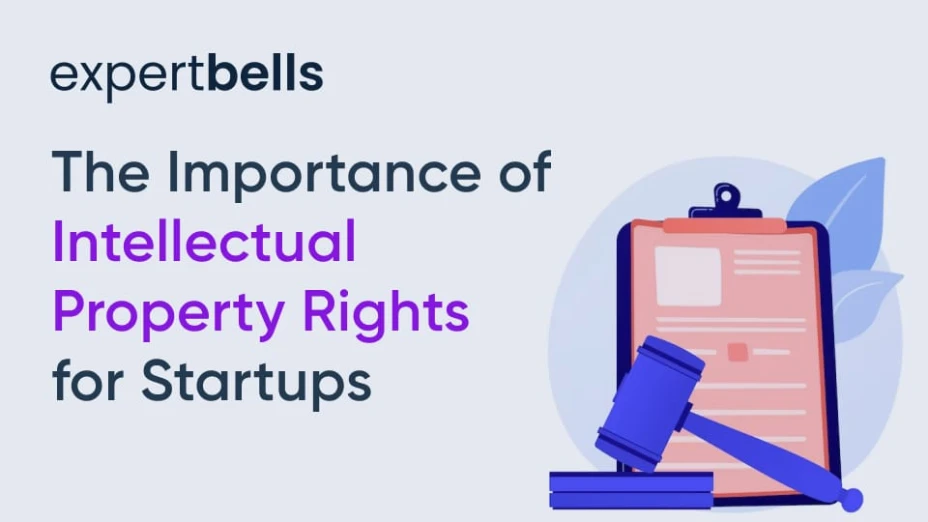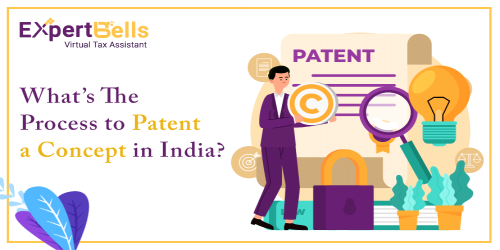The Importance of Intellectual Property Rights for Startups

Introduction
Defining Intellectual Property
Intellectual property, often abbreviated as IP, refers to a category of intangible assets that encompass a wide range of creations of the mind. These creations can include inventions, literary and artistic works, symbols, names, and images used in commerce. The primary purpose of intellectual property rights is to provide legal protection to individuals and organizations for their innovations and creative expressions.
The Genesis of Startups
Before delving into the significance of intellectual property rights for startups, it's essential to understand what startups are. Startups are entrepreneurial ventures that are typically characterized by their innovative nature, limited initial funding, and a focus on solving specific problems or addressing unmet needs in the market. They are the embodiment of creativity and innovation, making IP rights particularly relevant to their success.
The Building Blocks of Intellectual Property
Patents: Safeguarding Inventions
Utility Patents
Utility patents are crucial for protecting new and useful processes, machines, articles of manufacture, or compositions of matter. They provide inventors with exclusive rights to their inventions, preventing others from making, using, or selling them for a specified period, typically 20 years from the date of filing.
Design Patents
In addition to utility patents, design patents protect the ornamental design or aesthetic appearance of an object. This type of patent is valuable for startups that place a strong emphasis on product design as part of their branding and competitive strategy.
Plant Patents
Plant patents are a specific category of patents that cover asexually reproduced plants. For startups involved in agriculture, horticulture, or any form of plant breeding, plant patents are a vital tool for safeguarding their unique plant varieties.
Trademarks: Branding and Recognition
Trademarks are essential for establishing brand identity and recognition in the market. They can include names, logos, symbols, and slogans. Startups need to protect their trademarks to avoid confusion in the marketplace and to maintain the value of their brand.
Copyrights: Protecting Creative Works
Copyrights protect original works of authorship, such as books, music, software, and other creative expressions. For startups engaged in content creation, software development, or any form of artistic endeavour, copyrights provide protection against unauthorized copying or distribution of their work.
Trade Secrets: Hidden Assets
Trade secrets are valuable pieces of information that give a business a competitive advantage. They can include formulas, processes, methods, and other confidential information that is not publicly disclosed. Protecting trade secrets is crucial for startups to maintain their competitive edge in the market.
The Role of Intellectual Property in Startup Success
Attracting Investors
Investors are more likely to support startups that have secured their intellectual property rights. It demonstrates a commitment to protecting valuable innovations, which can increase a startup's attractiveness to potential funders.
Competitive Advantage
IP rights provide a competitive edge by preventing others from using or replicating a startup's unique innovations. This exclusivity can be a game-changer in industries with intense competition.
Market Expansion
Having robust IP rights allows startups to expand into new markets and territories while protecting their market share. This is particularly relevant for startups with global aspirations.
Talent Attraction
Innovative individuals are often drawn to startups that prioritize IP protection. It signals a commitment to fostering innovation and creativity, making it easier for startups to attract top talent.
Intellectual Property Strategies for Startups
Identifying Valuable IP
Startups need to identify which aspects of their business are most valuable in terms of intellectual property. This involves assessing their innovations, branding, creative works, and trade secrets.
Establishing an IP Strategy
An IP strategy should align with a startup's overall business goals. It should define how IP will be managed, protected, and leveraged to support the startup's growth and success.
Defensive vs. Offensive IP Strategies
Startups can choose between defensive and offensive IP strategies. Defensive strategies focus on protecting existing IP, while offensive strategies involve actively seeking new IP opportunities.
IP Budgeting
Managing IP involves costs, from registration fees to legal expenses. Startups need to budget for these costs and allocate resources effectively.
Avoiding Infringement
In addition to protecting their IP, startups must also avoid infringing on the IP rights of others. This requires due diligence and comprehensive research.
Navigating IP Challenges in the Digital Age
Cybersquatting and Domain Disputes
The digital age brings its own set of IP challenges, including cybersquatting, where individuals or entities register domain names that are similar to existing trademarks with the intent to profit from the confusion.
Copyright Infringement in the Digital World
The internet has made it easier for copyrighted works to be infringed upon. Startups must be vigilant in protecting their digital content.
Open Source and IP Concerns
Many startups rely on open-source software and collaborative development. Understanding the legal implications of open source is essential to avoid unintentional IP issues.
Social Media and IP
Social media platforms pose unique IP challenges, from trademark infringement to copyright violations. Startups must be aware of these risks.
Future Trends in IP for Startups
Emerging Technologies
Startups in fields like biotechnology, AI, and blockchain are at the forefront of IP development. Emerging technologies create new opportunities and challenges for IP protection.
Blockchain and IP
Blockchain technology offers innovative ways to secure and manage IP rights, such as through smart contracts and decentralized IP registries.
AI and IP
Artificial intelligence is increasingly used in IP searches, analysis, and even in generating creative works, raising questions about AI's role in IP creation and protection.
Globalization
The global economy presents startups with opportunities to expand their market reach, but it also requires an in-depth understanding of international IP considerations.
Conclusion
In the fast-paced world of startups, intellectual property rights are your shield and sword. They protect your innovations, attract investors, and give you a competitive edge. At Expertbells, we specialize in helping startups like yours secure their IP rights. Don't leave your ideas vulnerable; contact us today and take the first step towards a successful, protected future.
Related Articles

Conversion of Private Limited Company into Public Limited Company
A private company is a business entity held under private ownership. The company may issue stock and have shareholders, but company's shares do not trade on public exchanges like BSE or NFT and are not issued through an initial public offering (IPO).
Leave A Reply
Your email address will not be published. Required fields are marked *
Most Popular Blogs


What is a Mentor? Definition, Purpose & More

Difference Between Mentor and Mentee

How To Find A Business Mentor: A Complete Guide





5 Comments
Lorem Ipsum is simply dummy text of the printing and typesetting industry. Lorem Ipsum has been the industry's standard dummy text ever since the 1500s, when an unknown printer took a galley of type and scrambled it to make a type specimen book. It has survived not only five centuries, but also the leap into electronic typesetting, remaining essentially unchanged. It was popularised in the 1960s with the release of Letraset sheets containing Lorem Ipsum passages, and more recently with desktop publishing software like Aldus PageMaker including versions of Lorem Ipsum.
Lorem Ipsum is simply dummy text of the printing and typesetting industry. Lorem Ipsum has been the industry's standard dummy text ever since the 1500s, when an unknown printer took a galley of type and scrambled it to make a type specimen book. It has survived not only five centuries, but also the leap into electronic typesetting, remaining essentially unchanged. It was popularised in the 1960s with the release of Letraset sheets containing Lorem Ipsum passages, and more recently with desktop publishing software like Aldus PageMaker including versions of Lorem Ipsum.
Lorem Ipsum is simply dummy text of the printing and typesetting industry. Lorem Ipsum has been the industry's standard dummy text ever since the 1500s, when an unknown printer took a galley of type and scrambled it to make a type specimen book. It has survived not only five centuries, but also the leap into electronic typesetting, remaining essentially unchanged. It was popularised in the 1960s with the release of Letraset sheets containing Lorem Ipsum passages, and more recently with desktop publishing software like Aldus PageMaker including versions of Lorem Ipsum.